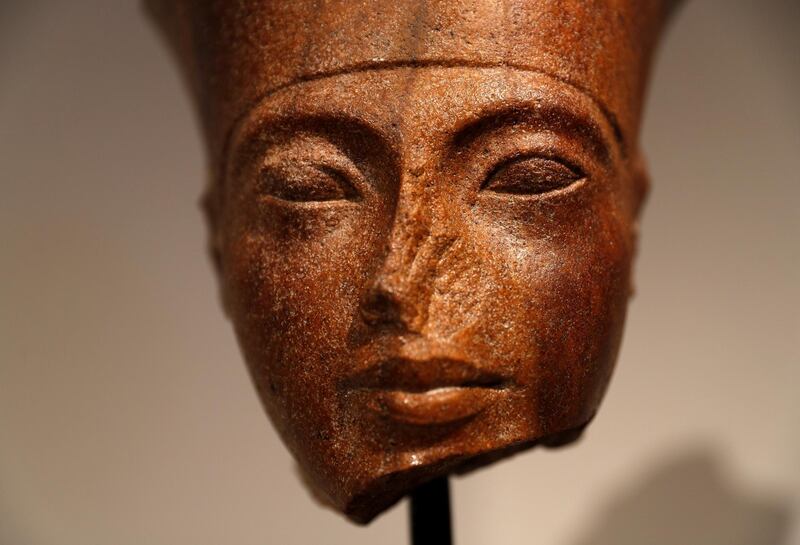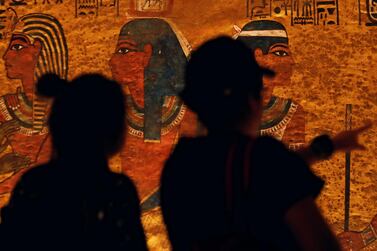A 3,000-year-old quartzite bust of Pharaoh Tutankhamun was sold at auction for £4 million (Dh18.4m) in London on Thursday, despite claims from Egypt that the item was stolen.
A protest against the sale was held outside auction house Christie’s, with Egyptian officials having also campaigned strongly against it.
Before the auction, Egyptian Minister for Antiquities Khaled Al Anani and former minister Zahi Hawass campaigned heavily to stop the sale of the bust, which they claimed was illegally taken from the Luxor Temple in the 1970s.
They circulated a letter to major museums to try to convince them not to buy or display the item.
Before the auction, Mr Hawass told The National that Egypt would try to stop the sale by legal means and that the country would not co-operate with Christie's in future if the sale went ahead.
But the bidding opened at £3m and climbed quickly to £3.8m. It hovered there until a phone bidder speaking to Robert Copley, Christie’s international head of furniture, took it up to £4m.
The case became a flashpoint in the recurring battle over antiquities of which the provenance cannot be entirely determined.
Despite Egypt’s claims, the country had no legal right to the bust.
It had left the country before Egypt passed its patrimonial law protecting heritage in 1983, and probably before the non-binding 1970 Unesco Convention, in which countries committed to avoid the theft and looting of objects of cultural value.
But the case captured the public’s attention. The sale was considered part of a continuing injustice against Egypt, whose cultural patrimony has been uprooted through colonialism, war and theft, and dispersed among collections in Europe and the US.
The protesters outside the auction house reportedly chanted: “God save Egyptian history”.
The sale also showed how auction houses are becoming increasingly confident about offering lots in the “grey market”, pieces of once disputed provenance that have been in the public eye for at least three decades.
“We would not offer for sale any object where there was concern over ownership or export," Christie's said.
"The work has been widely exhibited and published, and we have alerted the Egyptian embassy so they are aware of the sale.
"Christie's strictly adheres to bilateral treaties and international laws with respect to cultural property and patrimony."












